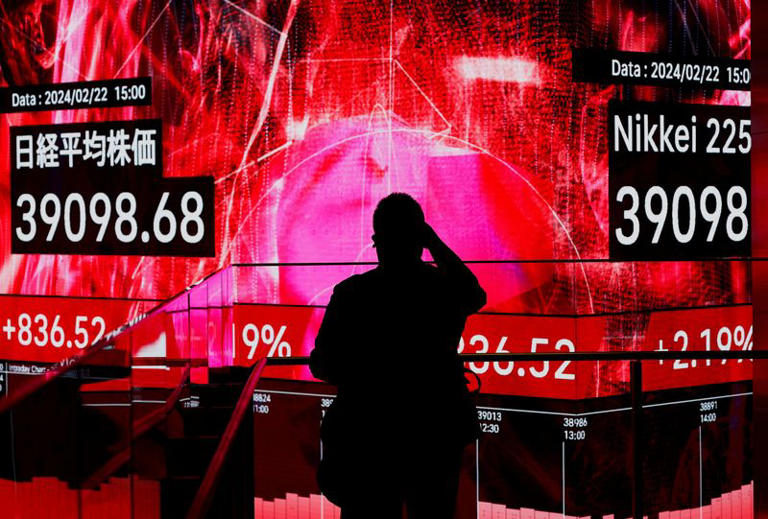On Friday, Japan’s Nikkei share average experienced a significant downturn, with the index tumbling nearly 2% to hit a three-week low, marking its most substantial weekly decline since December 2022. The descent was primarily driven by a pronounced slide in technology shares, which mirrored the negative sentiment prevailing in Wall Street.
Investor apprehension was further compounded by cautiousness ahead of the impending release of a crucial monthly U.S. jobs report later in the day. The uncertainty surrounding the Federal Reserve’s prospective timeline for potential interest rate adjustments exacerbated the nervousness among market participants throughout the week.
The Nikkei index witnessed a sharp drop of 1.96%, equivalent to 781 points, culminating in a close at 38,992.08. This decline resulted in a notable weekly loss of 3.41%. Kazuo Kamitani, an equities strategist at Nomura Securities, emphasized the pivotal role played by technical factors in driving the Nikkei lower. The index recorded its second consecutive weekly decline after reaching an all-time high of 41,087.75 on March 22.
Kamitani highlighted the significance of the 25-day moving average, which turned lower on Friday, indicating the potential for further downside for the Nikkei. He underscored that this moving average often exerts a gravitational pull on the market, potentially amplifying volatility in the upcoming week.
The semiconductor sector bore the brunt of the market downturn, with Tokyo Electron witnessing a steep decline of 5.6%, substantially dragging down the Nikkei. Other prominent losers included Advantest, SoftBank Group, and Fast Retailing, all of which contributed to the index’s overall descent.
Out of the Nikkei’s 225 components, 159 registered declines, while only 62 advanced, with four remaining unchanged. The broader Topix index also experienced a decline of 1.08%, with growth shares taking a more pronounced hit, dropping by 1.49% compared to value stocks, which saw a more modest decline of 0.68%.
In addition to market factors, seasonal influences, coupled with the anticipation of the upcoming earnings season, contributed to the observed weakness in the equity market. Norihiro Yamaguchi, senior Japan economist at Oxford Economics, suggested that this cautious sentiment prompted investors to adopt a wait-and-see approach, further dampening market sentiment and contributing to the overall downturn in Japanese stocks.
